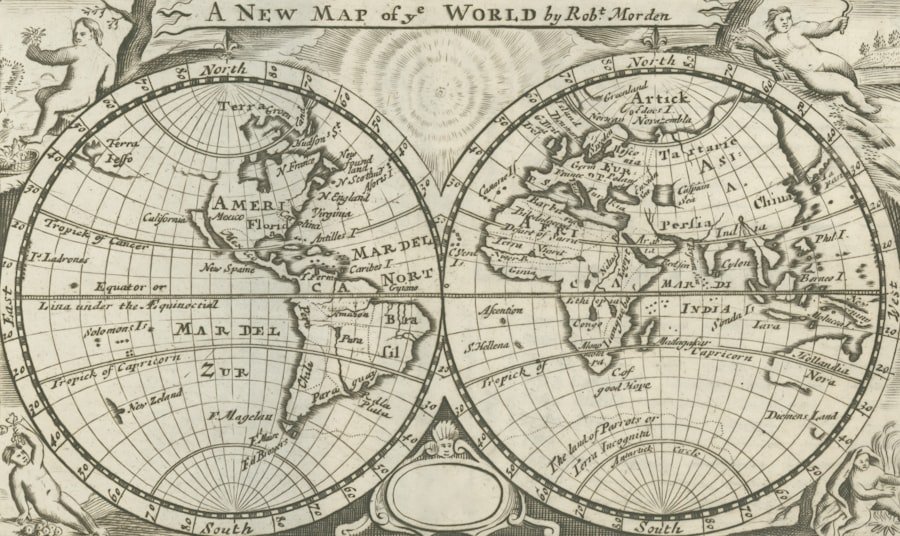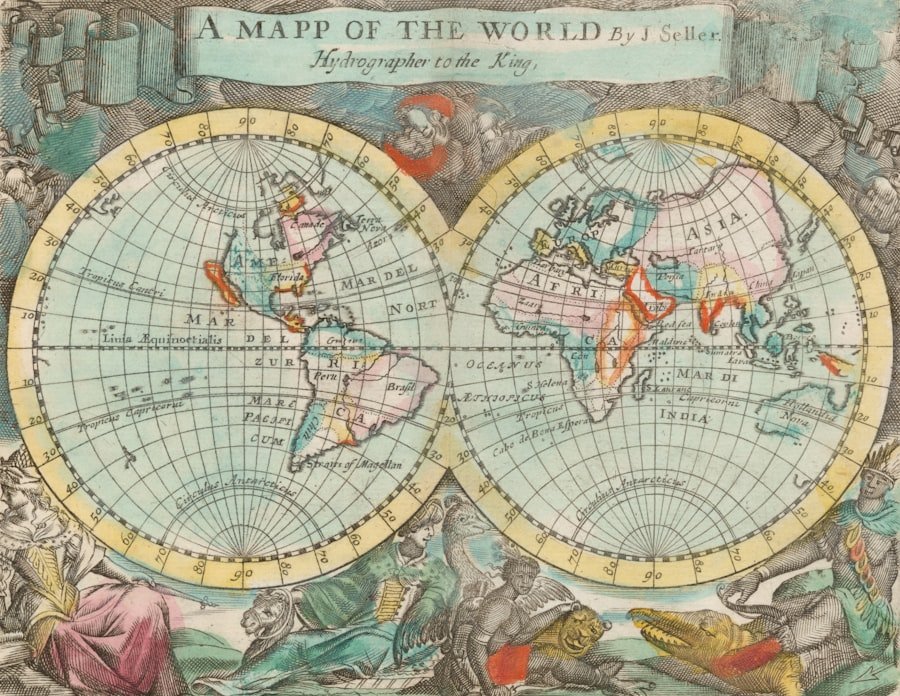In the modern interconnected world, global political events significantly influence investment strategies. Elections, regime changes, geopolitical tensions, and trade policies can create uncertainty and volatility in financial markets. Consequently, investors must carefully evaluate the potential impact of these events on their investment decisions.
A crucial factor for investors to consider is the potential for political instability in various regions worldwide. Such instability can lead to economic uncertainty, affecting investment opportunities. Moreover, political instability may result in changes to government policies and regulations, directly impacting specific industries and sectors.
Therefore, it is essential for investors to remain informed about global political events and assess their potential effects on investment opportunities. Geopolitical tensions play a significant role in shaping investment strategies. Conflicts between countries or regions can generate uncertainty and volatility in financial markets.
Investors must carefully consider the potential impact of geopolitical tensions on their investment decisions, as these tensions can lead to changes in trade policies, tariffs, and other regulations affecting specific industries and sectors. In this complex global landscape, it is crucial for investors to stay informed and adapt their investment strategies accordingly.
Key Takeaways
- Political events have a significant impact on investment strategies, and it is important for investors to stay informed and adapt their strategies accordingly.
- Political instability can lead to uncertainty and risk in investment decisions, prompting investors to carefully consider the potential impact on their portfolios.
- Geopolitical tensions play a crucial role in shaping investment strategies, as they can create volatility and affect the performance of various asset classes.
- Trade policies and tariffs can influence investment choices by impacting the cost of goods, supply chains, and market access, requiring investors to adjust their strategies accordingly.
- Political leadership can have a direct effect on investment markets, as policies and decisions made by leaders can impact economic conditions and market sentiment.
The Impact of Political Instability on Investment Decisions
Political instability can have a profound impact on investment decisions. When a country experiences political instability, it often leads to economic uncertainty, which can create volatility in financial markets. This volatility can make it challenging for investors to make informed decisions about where to allocate their capital.
Additionally, political instability can lead to changes in government policies and regulations, which can directly affect specific industries and sectors. For example, a change in government leadership or regime change can lead to shifts in economic policies, tax regulations, and trade agreements. These changes can have a direct impact on businesses operating within the affected country or region, as well as on foreign companies that have investments or trade relationships with the country in question.
As a result, investors need to carefully consider the potential impact of political instability on their investment decisions and assess the risks associated with investing in regions experiencing political turmoil. Moreover, political instability can also lead to social unrest and protests, which can disrupt business operations and lead to economic downturns. In such situations, investors need to carefully evaluate the potential risks and rewards of investing in regions experiencing political instability.
It is crucial for investors to stay informed about global political events and assess their potential impact on investment opportunities in order to make well-informed decisions.
The Role of Geopolitical Tensions in Shaping Investment Strategies

Geopolitical tensions play a crucial role in shaping investment strategies. When there are conflicts between countries or regions, it creates uncertainty and volatility in financial markets. Geopolitical tensions can lead to changes in trade policies, tariffs, and other regulations that can directly affect specific industries and sectors.
As a result, investors need to carefully consider the potential impact of geopolitical tensions on their investment decisions. For example, trade tensions between major economies such as the United States and China have led to fluctuations in financial markets and have directly impacted industries such as technology, manufacturing, and agriculture. These tensions have also led to changes in trade policies and tariffs, which have affected the profitability of companies operating within these industries.
Therefore, investors need to stay informed about geopolitical tensions and assess their potential impact on investment opportunities in order to make well-informed decisions. Furthermore, geopolitical tensions can also lead to changes in alliances and agreements between countries, which can create new investment opportunities or pose new risks for investors. For example, shifts in alliances between countries can lead to changes in trade relationships and regulations that can directly affect specific industries and sectors.
As a result, investors need to carefully evaluate the potential impact of geopolitical tensions on their investment decisions and adapt their strategies accordingly.
The Influence of Trade Policies and Tariffs on Investment Choices
Trade policies and tariffs have a significant influence on investment choices. When countries implement changes in trade policies or impose tariffs on imports and exports, it directly affects specific industries and sectors. For example, tariffs on imported goods can lead to increased production costs for companies operating within affected industries, which can directly impact their profitability and investment potential.
Furthermore, changes in trade policies can also lead to shifts in supply chains and trade relationships, which can create new investment opportunities or pose new risks for investors. For example, changes in trade agreements between countries can lead to new market access for certain industries or create barriers for others. As a result, investors need to carefully consider the potential impact of trade policies and tariffs on their investment choices.
Moreover, trade policies and tariffs can also lead to retaliatory measures from affected countries, which can create further uncertainty and volatility in financial markets. This volatility can make it challenging for investors to make informed decisions about where to allocate their capital. Therefore, it is crucial for investors to stay informed about changes in trade policies and tariffs and assess their potential impact on investment opportunities in order to make well-informed decisions.
Political Leadership and Its Effect on Investment Markets
Political leadership has a significant effect on investment markets. When there are changes in government leadership or regime changes, it often leads to shifts in economic policies, tax regulations, and trade agreements. These changes can directly affect specific industries and sectors, creating new investment opportunities or posing new risks for investors.
For example, changes in government leadership can lead to shifts in economic priorities and policies that directly impact businesses operating within the affected country or region. Additionally, regime changes can lead to social unrest and protests, which can disrupt business operations and lead to economic downturns. As a result, investors need to carefully consider the potential impact of political leadership on investment markets.
Furthermore, political leadership can also influence investor sentiment and market confidence. When there is uncertainty surrounding government leadership or economic policies, it can create volatility in financial markets as investors react to the potential risks and rewards of investing in affected regions. Therefore, it is crucial for investors to stay informed about changes in political leadership and assess their potential impact on investment markets in order to make well-informed decisions.
How International Alliances and Agreements Affect Investment Opportunities

International alliances and agreements have a significant effect on investment opportunities. When countries form alliances or enter into agreements with one another, it creates new market access for certain industries or creates barriers for others. These changes directly affect specific industries and sectors, creating new investment opportunities or posing new risks for investors.
For example, international alliances such as free trade agreements can lead to increased market access for companies operating within affected industries, creating new opportunities for growth and expansion. On the other hand, changes in alliances or agreements can also lead to barriers for certain industries, creating challenges for companies operating within affected regions. As a result, investors need to carefully consider the potential impact of international alliances and agreements on investment opportunities.
Furthermore, international alliances and agreements can also lead to shifts in supply chains and trade relationships, which can create new investment opportunities or pose new risks for investors. For example, changes in trade relationships between countries can lead to shifts in production costs and market access for specific industries. Therefore, it is crucial for investors to stay informed about international alliances and agreements and assess their potential impact on investment opportunities in order to make well-informed decisions.
The Importance of Staying Informed and Adapting Investment Strategies in a Changing Political Landscape
In today’s changing political landscape, it is crucial for investors to stay informed and adapt their investment strategies accordingly. Global political events such as elections, regime changes, geopolitical tensions, trade policies, tariffs, political leadership, international alliances, and agreements all have a significant impact on investment opportunities. Therefore, investors need to carefully consider the potential impact of these events on their investment decisions.
Staying informed about global political events requires keeping up with current news sources, economic reports, and expert analysis of geopolitical developments. By staying informed about these events, investors can assess the potential risks and rewards of investing in various regions around the world. Additionally, staying informed allows investors to adapt their investment strategies based on changing political landscapes.
Adapting investment strategies in a changing political landscape requires careful evaluation of potential risks and rewards associated with investing in affected regions. By assessing the potential impact of global political events on investment opportunities, investors can make well-informed decisions about where to allocate their capital. Furthermore, adapting investment strategies allows investors to take advantage of new opportunities created by changes in political landscapes while mitigating potential risks associated with uncertainty and volatility.
In conclusion, global political events have a significant impact on investment strategies. Political instability, geopolitical tensions, trade policies, tariffs, political leadership, international alliances, and agreements all play a crucial role in shaping investment opportunities around the world. Therefore, it is essential for investors to stay informed about global political events and adapt their investment strategies accordingly in order to make well-informed decisions about where to allocate their capital.
For more insights on how global political events can impact investment strategies, check out this article on The Econosphere’s website: The Influence of Geopolitical Tensions on Investment Decisions. This article delves into the ways in which geopolitical tensions can affect investment decisions and offers valuable insights for investors navigating uncertain political landscapes. For more information, visit The Econosphere’s contact page or review their terms of service.
FAQs
What are global political events?
Global political events refer to significant occurrences or developments in the political landscape of countries around the world. These events can include elections, changes in government leadership, geopolitical tensions, trade agreements, and international conflicts.
How do global political events influence investment strategies?
Global political events can have a significant impact on investment strategies as they can create uncertainty and volatility in financial markets. Investors often adjust their portfolios in response to political events to mitigate risks and capitalize on potential opportunities.
What are some examples of global political events that have influenced investment strategies?
Examples of global political events that have influenced investment strategies include Brexit, the US-China trade war, the Arab Spring, and the imposition of economic sanctions on countries such as Russia and Iran. These events have led to market fluctuations and changes in investor behavior.
How can investors navigate the influence of global political events on investment strategies?
Investors can navigate the influence of global political events on investment strategies by staying informed about geopolitical developments, diversifying their portfolios across different asset classes and regions, and seeking professional financial advice. Additionally, having a long-term investment perspective can help mitigate the impact of short-term political volatility.








